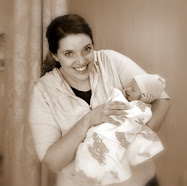Doulas: Easing Birth
Labor Coaches
Reviewed by Charlotte E. Grayson Mathis, MD
When Barbara and Christopher Lawton were planning for the birth of their son almost two years ago, the midwife practice they were using in Pittsburgh asked them if they were going to use a doula during childbirth. "I didn't even know what that was," says Barbara.
A doula, Lawton found out, is a private labor assistant ... not a doctor, not a nurse, not a midwife. Indeed, a doula (a Greek word meaning "women supporting women") is not a medical professional at all. Rather, she provides support and encouragement throughout labor and delivery, and often, after the baby is born, as well.
Q: If prenatal vitamins are extra good for you when you’re pregnant, why not take them all the time? A: These specially formulated multivitamins are designed to ensure pregnant women get all the extra vitamins and minerals essential for the development of a healthy baby and to meet the increased nutritional needs of mom, too. They also benefit women who are trying to become pregnant and new mothers who are breastfeeding. Specifically, prenatal vitamins deliver a bigger boost of folic...
Doulas are a centuries-old tradition, but have become popular again in the U.S. in the past 15 or so years. "Having another woman's presence during childbirth is very helpful," says Pam Lesser, RNC, MS, manager of women's support services at Barnes-Jewish Hospital in St. Louis, Mo. While many labor-delivery nurses would like to provide the encouragement that delivering moms need, the fact is that because of the time constraints nurses face in today's hospitals, it's not likely that one nurse will be able to provide the support that most women need during this time.
Doulas do not take the place of a woman's partner. "The mother's partner is an integral part of the experience and an extremely supportive one," Lesser says. "But it's unreasonable to expect the partner -- who is as emotionally involved as the expectant mom -- to provide all the support."
Continuous Support
According to the organization, DONA (Doulas of North America), doulas are women who are trained and experienced in childbirth, whether or not they have actually given birth themselves. The doula provides physical, emotional, and informational support to women and their partners during labor and birth. She offers help and advice on such measures as breathing, relaxation, movement, and positioning. She also helps the mom-to-be (and her partner, if one is there) gather information about the course of her labor and options during labor and delivery. And perhaps most important, she provides continuous emotional reassurance and comfort.
It's that word -- continuous -- that is such a vital part of a doula's role. "My doula met me at the hospital at noon, and was still there the following day at 4:30 when I finally saw my son for the first time," says Lawton.
"That continuous presence is extremely important," says Lesser. "It's a great asset. The doula never leaves the mom's side. That's her job."
Barnes-Jewish Hospital thinks so much of the value of doulas that in 1998, the hospital established its own doula program. Today, there are approximately 50 doulas on staff, so that any woman who would like to have a doula during her labor and delivery can request one. The service is provided free of charge. Approximately 25% of the women delivering at Barnes-Jewish ask for a doula, says Lesser.
Fewer Complications
Research findings seem to back up the value of having a doula during childbirth. In the late 1970s, Drs. John Kennell and Marshall Klaus looked into ways to enhance the emotional bonding between mother and newborn. They found that having a doula in the labor room not only improved that bond, but also seemed to decrease the incidence of complications.
"Studies have shown that doulas can lead to fewer Cesarean sections, a shorter labor, fewer requests for pain medication or epidurals, less need for oxytocin, and fewer instances of forceps delivery," says Lesser. "The role of the doula has increasingly been adapted as part of a positive birthing experience."
Sarah Pinkner is a doula at Barnes-Jewish Hospital. While many doulas are hired privately by expectant parents, Pinkner enjoys being part of the hospital's staff. "Women of so many different cultures come into Barnes-Jewish," she explains. "This is an opportunity for them to take advantage of a service they may not have known about, or perhaps could not afford on their own." The cost of a doula varies throughout the country, but generally ranges from $200-$800.
Hiring a Doula
There are no state licensing requirements for doulas, but many do go through a 16-hour certification process offered by DONA that includes training in:
- The emotional and psychological process of labor and birth.
- The anatomy and physiology of reproduction, labor, and birth.
- Comfort measures and non-pharmacological pain-management techniques.
- Appropriate topics for prenatal and postpartum discussion with clients.
- Discussion of ethics and standards of practice for the doula.
- Referral sources for client needs beyond the scope of the doula.
- Communication skills and values clarification.
If the birthing center you are planning to use doesn't provide doulas as part of its services and you are interested in hiring one privately, DONA recommends asking the following questions:
- What training have you had?
- What has been your experience with childbirth, personally and as a doula?
- What is your philosophy about childbirth?
- May we discuss our birth plans and what kind of role you can play in supporting me through childbirth?
- May we call you with questions before and after the birth?
- At what point do you come to us? Do you meet us at home or at the hospital?
- Do you meet with us after the birth?
- Do you work with any other doulas in case you're not available? May we meet with them?
- What is your fee?
"My doula was a very important source of encouragement," says Lawton. Which is just what the doula herself is aiming for, Pinkner says.
"It's a chance for me to make a difference."
http://www.webmd.com/baby/features/doulas-easing-birth



No comments:
Post a Comment